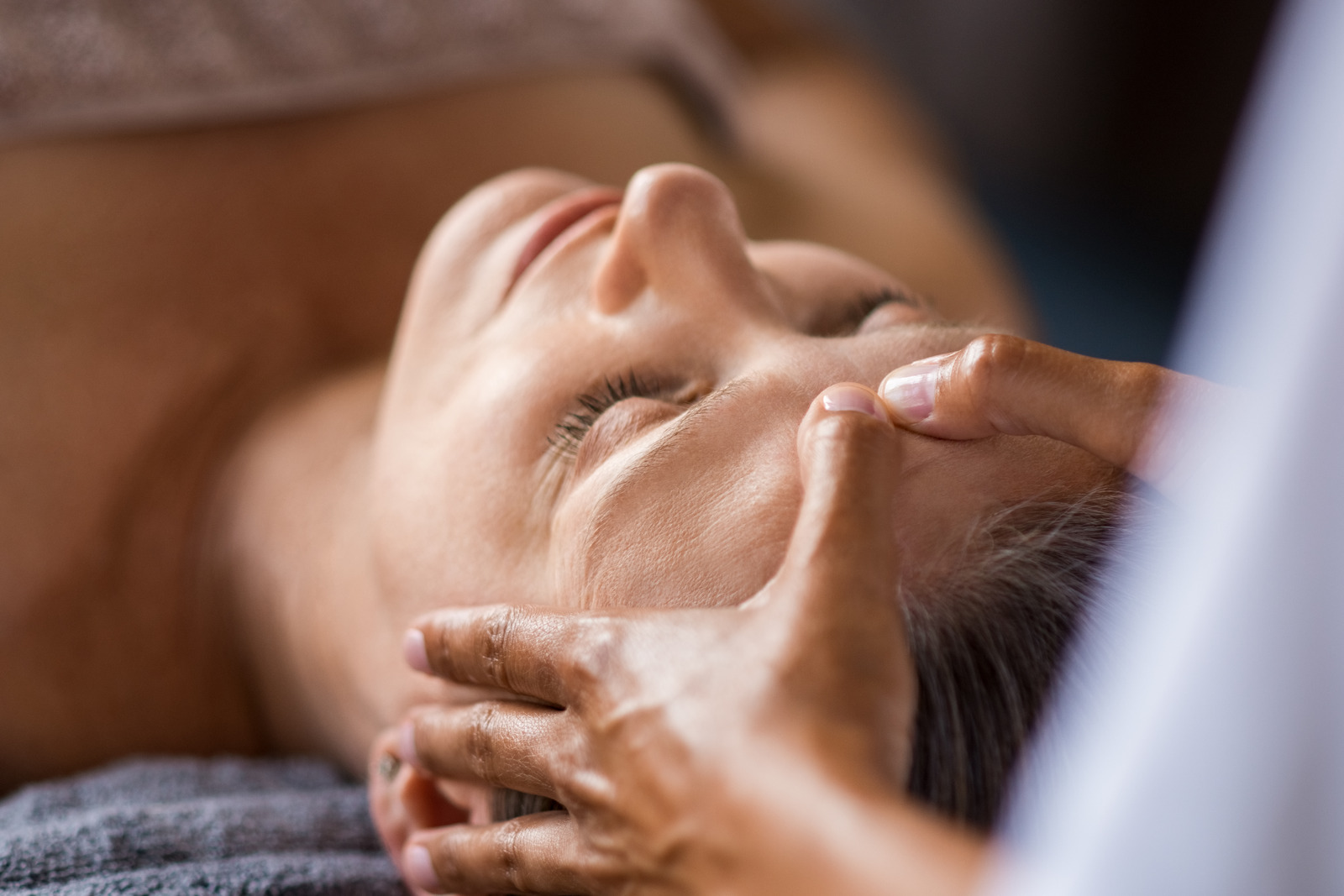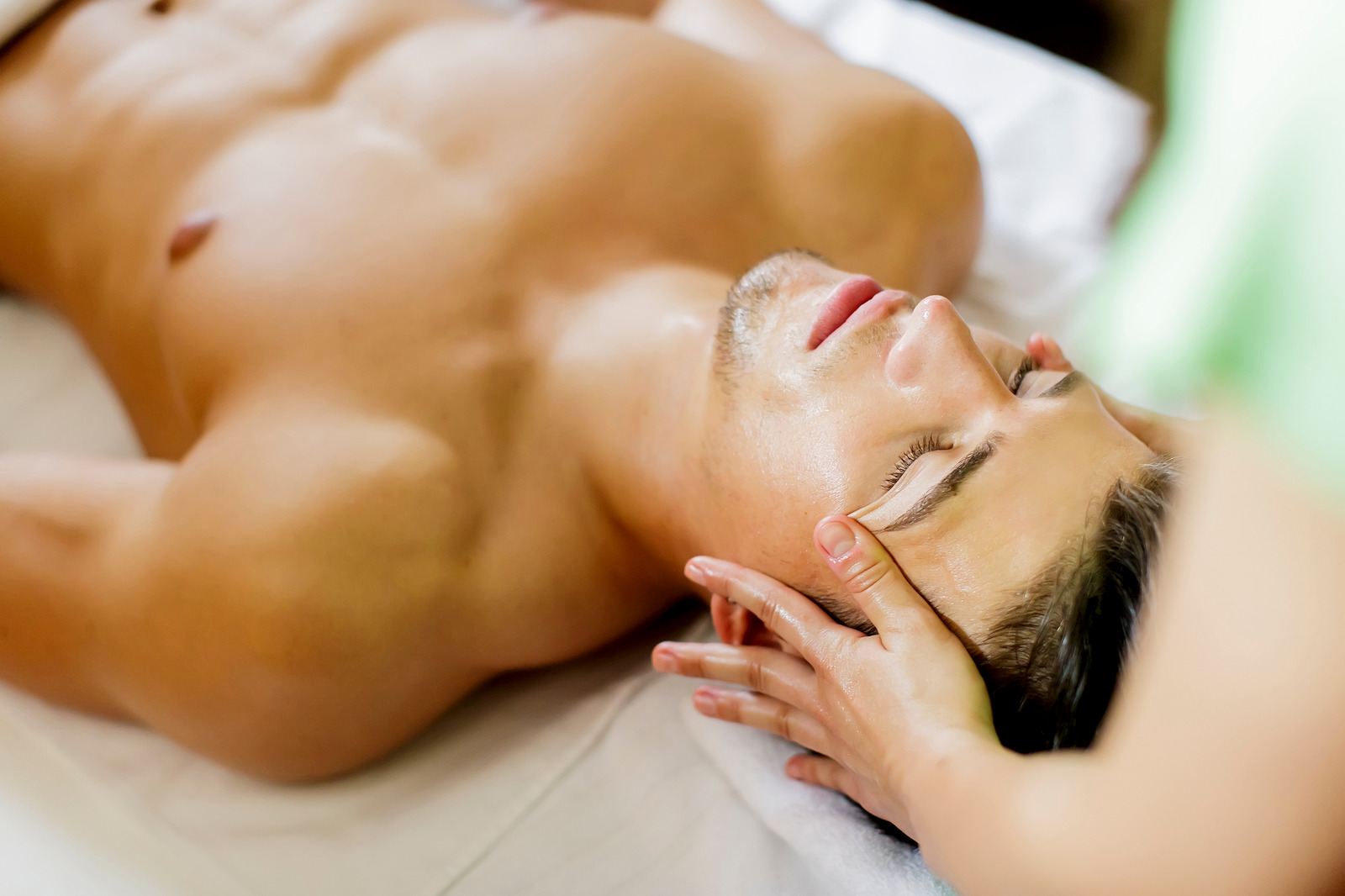
Skin Care During Menopause: How To Take Care of It
In the United States, the average age a woman begins menopause is 51, though it can generally come about anytime in your 40s or 50s. In 2020, 50 million American women will be at the average age for menopause, and yet the conversation around the physical and mental changes that happen during this inevitable time in a woman’s life as well the resources available to her are limited at best.
Only 7% of patients are getting the treatment they need even though there are upwards of 34 common symptoms associated with menopause.
On the topic of beauty alone, it is estimated that up to a third of your dermal collagen (or the matter that keeps your skin looking plump and lifted) will be lost in the first five years after menopause, after which time it decreases approximately 2% per year.
But our social media feeds and the shelves of popular beauty stores are flooded with products that serve a much younger age bracket—girls whose collagen is flourishing and whose oil production is regulated. In other words, products specifically formulated to target the general degradation of the skin during this pivotal time are few and far between, and the education to support how women should be treating their skin following these changes is scarce. So what should you be doing for skin care during menopause? Keep reading to find out!
The Three Stages of Menopause
Generally, we talk about menopause as one overarching concept, but it’s actually a three-part phase: Perimenopause, menopause, and postmenopause. Perimenopause can begin eight to 10 years before menopause when the ovaries progressively produce less estrogen and can start as young as your 30s; menopause is the year-long stretch when a woman doesn’t have her menstrual period; and postmenopause comes after menopause and can last for up to a decade or longer.
How Your Skin Changes During This Time
You’ll begin to see thinning, sagging, wrinkling, and poor wound healing during perimenopause as declining ovarian function leads to decreased estrogen levels. Then once you hit menopause, there is complete estrogen deficiency and the skin changes are much more pronounced.
These include:
Dryness: As estrogen levels decrease, women will experience increased dryness due to decreased sebum (or oil) production.
Dehydration: As we age, our hyaluronic acid levels (which keep the skin hydrated) decrease.
Enlarged pores: Pores will appear larger due to weaker collagen and elastic tissue.
Acne: Due to hormonal changes, women may break out during peri-menopause and menopause.
Sunspots or age spots: Gmyrek says this is not specifically related to estrogen withdrawal, but rather occurs concomitantly due to life stage and age.
What changes to skin care should women make as they enter these different stages of menopause?
For dryness: You should swap your foaming, soap-based cleansers for something more gentle and nourishing like cream (non-soap) cleansers. This is because soap-based formulas tend to pull oil from the skin. Moisturize with cream moisturizers that contain ceramides, glycerin, or hyaluronic acid (not lotions, as these are water- and/or alcohol-based and don’t lock in hydration as much as an emollient-rich, oil-based moisturizer). It’s recommended to apply moisturizer while the skin is still damp for better absorption.
For acne: Because the skin is thinner and drier during menopause, you’ll want to steer clear of harsh acne remedies. A soap-free cleanser with salicylic acid to unclog pores is best as well as topical adapalene gel 2 to 3 times per week.
For wrinkles and fine lines: Most over-the-counter products available without a prescription are difficult to evaluate scientifically because study data is not available. The two ingredients I recommend most are topical vitamin A in the form of retinoids or retinol and topical vitamin C as a top skin care during menopause choice for the best anti-aging ingredients.
Buy a product in a light-protected container or tube as vitamin A is inactivated by sunlight, and, for this very reason, only apply it at night before bed. If your skin doesn’t respond well to retinoids, the alternative recommended is bakuchiol, a naturally-derived plant extract that offers the same benefits as a retinol but is less irritating and better tolerated by sensitive skin.
In terms of vitamin C, this is essential as it helps boost collagen and protects the skin from oxidative damage. Most importantly, consistently apply the gold standard (especially in tropical locations like Florida): sunscreen.
You need sunscreen more than ever after menopause. The skin is thinner and more fragile, so protecting it from the sun is important. Use a sunscreen labeled SPF 30 (or higher—the SPF factor is a measure of protection against UVB light only) in order to be sure you are protected against UVA light as well as make sure the label says ‘broad spectrum.’ Age spots will be worse if you continue to get sun.
Exfoliation: Aging skin will see more dead skin cells accumulating on the top layer, but because the skin is thin and more sensitive, you’ll need to tread lightly with trying to slough them off. Exfoliation can help remove dead cells quickly and easily, encouraging cell renewal, but you have to be extra careful and choose, first of all, a gentle at-home exfoliating product and use it no more than twice a week.
See your dermatologist or esthetician: If your budget allows, resurfacing treatments like laser and micro needling can help to stimulate collagen. These treatments gently wound the skin in a very controlled fashion and this controlled injury causes a wound healing response that stimulates the production of new collagen and elastic tissue. It’s perfect skin care during menopause to help keep your face looking plump and youthful.
Other Lifestyle Changes You Can Make
Exercise: Moving physically benefits your skin by increasing the delivery of oxygen and nutrients as it increases blood flow, which also helps to remove toxins from the skin that cause further collagen and elastin breakdown. In addition, exercise has been shown to improve sleep patterns. Which brings us to our next point…
Sleep: Sleep is the time that your body repairs damage. If you do not get quality sleep, you will repair less of your collagen and elastin daily damage. A study showed that even premenopausal women who did not sleep well exhibited more extensive signs of skin aging including fine lines, uneven pigmentation, and reduced skin elasticity.
Eat well: Fill your diet with essential fatty acids, like the omega-3s found in salmon, walnuts, fortified eggs, algae oils, flax, safflower oil, and sardines to keep the skin’s barrier intact, a key factor in retaining skin moisture. Also veggies and fruits for their antioxidants can help preserve skin health.
Botanica Skin Care Services
While Botanica is open to any age, for women in any of the three stages of menopause, we can help you retain beautiful, healthy skin as you continue to enjoy life and make the best memories (while having great skin care during menopause options)! Call us at 727-441-1711 to book your facial appointment today!
Love,
Gen



Leave a Reply